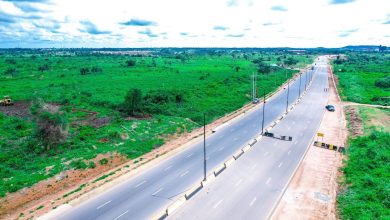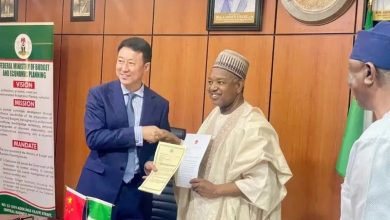Nigeria Allocates ₦1 Trillion to Transform Solid Minerals Sector, Dele Alake
Federal Government has allocated ₦1 trillion in 2025 to revitalise Nigeria’s solid minerals sector.
Minister Alake says the fund targets exploration, job creation, and global competitiveness under Tinubu’s agenda.
Nigeria’s solid minerals sector is set for a significant overhaul, with the Federal Government allocating ₦1 trillion in the 2025 budget to address gaps in exploration and position the country as a competitive player in global mining. The Minister of Solid Minerals Development, Dr Dele Alake, disclosed this on Friday, July 11, during a two-day ministerial retreat in Abuja themed “Enhancing Performance, Strengthening Accountability, and Fostering Innovation in the Solid Minerals Sector.”
According to Alake, the substantial budget aims to generate credible geological data and certify mineral resources in line with the Pan-African Resources Reporting Code (PARC). He noted that these measures are essential for attracting significant investments and ensuring sustainable sectoral development.
The fund will support key initiatives, including nationwide aeromagnetic surveys, geochemical mapping of key mineral belts, and the expansion of the national geoscience databank. These activities are also expected to help curb illegal mining operations by synchronizing exploration data.
The ministry’s new Mining Marshals, a 2,350-strong task force, have already cleared 98 illegal mining sites, arrested 273 individuals, and are actively monitoring over 400 others. Efforts are also underway to organize artisanal miners into cooperatives, making them eligible for formal financing and inclusion in the formal economy.
Alake highlighted ongoing progress in mineral value addition, citing several high-profile investments such as a $600 million lithium processing plant and a multi-million-dollar iron-to-steel conversion facility. These projects are part of the ministry’s push for beneficiation and job creation under President Bola Tinubu’s Renewed Hope Agenda.
“This retreat is not just for reflection. It’s about action,” Alake said. “We are focused on aligning the ministry’s performance with the President’s vision for economic diversification, job creation, and inclusive growth.”
He explained that the ministry’s Seven-Point Agenda, recently endorsed by the Federal Executive Council, outlines a strategic roadmap for making Nigeria’s solid minerals sector globally competitive. This includes enhancing data transparency, increasing private sector participation, and ensuring environmentally responsible mining.
Alake also gave an update on the sector’s fiscal growth, revealing that revenue jumped from ₦12 billion in 2023 to ₦36 billion in 2024. License revenue alone rose from ₦6.07 billion to ₦12.58 billion within the same period. The number of registered mining companies increased from 883 to 1,025, and 320 Community Development Agreements have been signed with host communities.
Permanent Secretary of the ministry, Faruk Yusuf Yabo, said the retreat was designed to align deliverables with national goals, improve leadership synergy, and institutionalize a results-driven management culture.
“The global energy transition has raised demand for critical minerals. Countries that have invested in well-structured mining governance are already taking the lead. Nigeria must not be left behind,” Yabo said.
Senator Samson Eking, Chairman of the Senate Committee on Solid Minerals, commended Alake’s leadership and emphasized the importance of solid minerals in driving Nigeria’s economic diversification.
“This sector offers vast opportunities across gold, lithium, iron, bitumen, and more,” Eking said. “We must ensure we maximize these resources responsibly.”
However, concerns were raised by Jonathan Gwefi Gaza, Chairman of the House Committee on Solid Minerals, who stressed the need for stricter internal accountability. He cited cases of foreign companies evading Value Added Tax (VAT) and poorly implemented community agreements.
“Even with the successes recorded, we must look inward to address lapses in accountability and innovation,” Gaza warned. “Only then can we truly harness the potential of our God-given resources.”
The retreat concludes on Saturday, July 12, with participants expected to draft concrete policy proposals to guide implementation across the sector.



